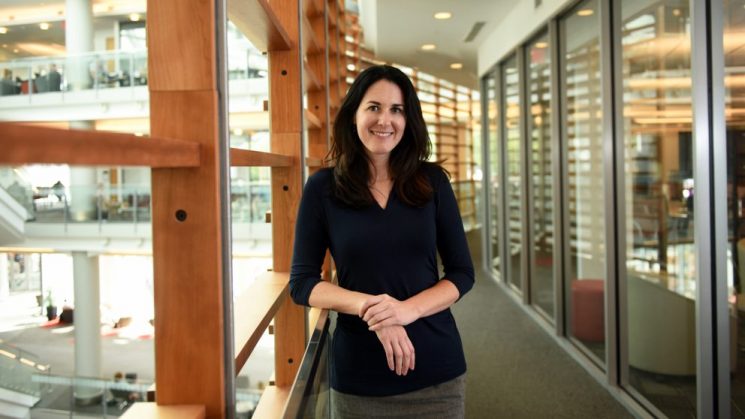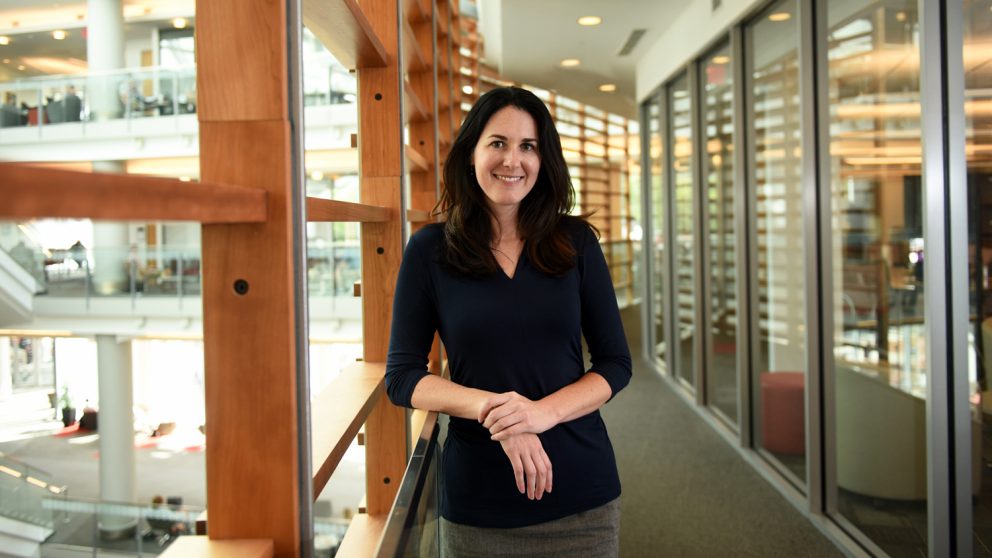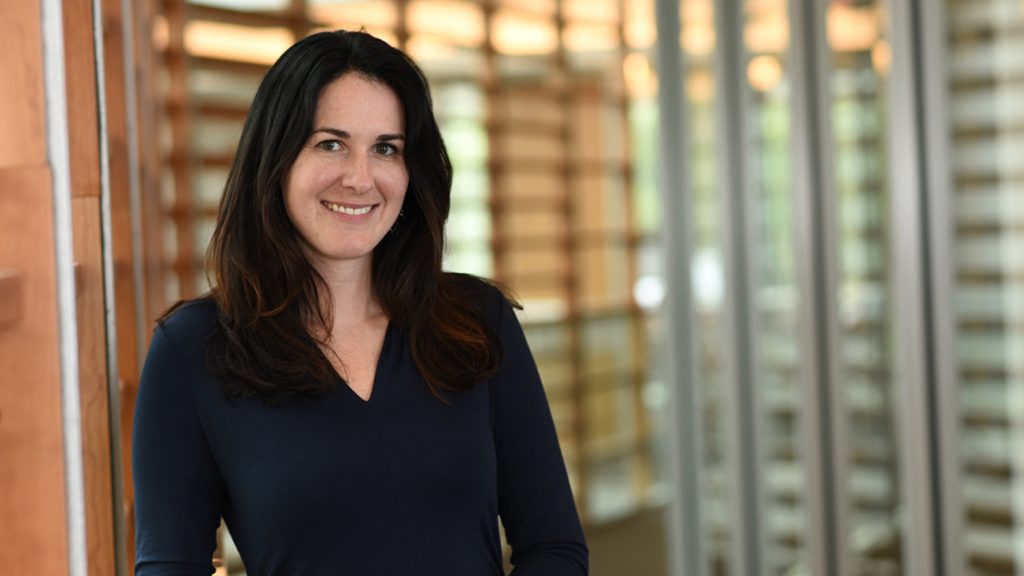

Written by Chelsea Kellner
This article originally appeared on CALS News
Ph.D. student Johanna Elsensohn understands the importance of intersecting science with policy: During the international Zika virus crisis, she worked with policymakers on one of her regular trips to Washington, D.C., as an entomology expert and advisor.
Elsensohn studies genetic pest management, using genetic tools to modify pests themselves rather than plants. She was drawn to CALS for the chance to “not only focus on my discipline, but also on the social, economic, political implications of what my work implies.”
Tell us about your work in Washington, D.C.
I’m a science policy fellow of the Entomological Society of America, just finishing a two-year appointment. Twice a year, we travel to Washington, D.C. The spring visits focus on meeting with the legislative branch — the congressional offices of senators, house representatives and their committees. This past spring, we met with the Senate Agriculture Appropriations Committee, and talked about the fiscal year 2018 budget. The fall visits focus on meeting with various NGOs and the executive branch.
As advocates, we discuss why entomology and science itself are important. We’ve also met with people from the White House and the departments of State and Interior, among others.
It’s been eye-opening.
It’s been eye-opening in terms of how few science Ph.D.s are actually deciding science policy, and just how many groups and interests are vying for attention and money.
A thing I’ll advocate for in the future is to get people to consider working in D.C. Many people aren’t interested in a straight academic track, and this is one way to use the skills you gained during your Ph.D. to contribute to society in an important and meaningful way.
Did anything surprise you about working in D.C.?
Meeting with congressional offices and their staff, the majority of work is being done by people in their early 20s. There seems to be a high turnover rate, as well — it’s rare to meet with the same person twice. It makes me wonder what’s slipping through the cracks when people transfer into and out of these positions. How can there be continuity?
It’s rare to meet the same person twice. It makes me wonder what’s slipping through the cracks.
What kind of questions are you asked?
The first one is kind of funny — it’s usually, “what do you guys do?” Entomology isn’t an everyday word! It’s very much an informational process for the people we meet with, because they often don’t have a sense of how much insects impact the lives of everyone in the country. It’s not just our food system, it’s public health, it’s all these things and more. Once they see the importance, the question then becomes, “What can we do to help besides maintaining science funding?”
Did you always know you were interested in policy?
I didn’t, no, but since coming to NC State, my work in policy has completely changed how I see my field. Policy impacts science in a huge way by deciding what and how it’s done, mostly through funding and regulations. These decisions are not always completely based on science, so learning the ways in which the scientific community can impact this process has been immensely valuable.
My work in policy completely changed how I see my field.
What brought you to CALS?
NC State is a great place to expand and enrich your learning learn as much as you want to. I came into CALS through a specific interdisciplinary program, but I soon discovered the mentality of working collaboratively to solve major challenges is part of NC State’s culture and value system. That’s made me feel at home here.
Describe your work right now.
My dissertation is looking at the various barriers to sustainable agriculture, pest management in particular, using a new invasive fruit fly as my case study. On the entomology side, we’re looking at what kinds of information the females use when deciding where to lay her eggs. On the social side, I’m trying to understand what information we need to know in order to both legally and socially allow new technologies like genetically modified insects, to be released into the wild.
How did you get interested in that?
I started working in agriculture because I want to help farmers be economically and environmentally sustainable. This is very important not just for the U.S., but across the globe. Invasive species that attack crops are not going away anytime soon. I’m studying what makes them such a problem for farmers and how we can manage them.
We don’t have to wait for the next invasive species to show up. We can do something now.
What challenges do you see ahead? What do we need to do next?
When you look at what’s happening at the state and federal levels, the trend has been to cut science funding. We as scientists, especially in agriculture, know the challenges we’re going to face will only get larger: invasive insects, weeds, and pathogens will only get worse over time because of the globalization of the food supply. With climate change, we will be facing droughts and other plant stressors. We can anticipate that.
I think our discipline needs to think about these future problems as a whole and try to be more proactive. How can we make our systems more resilient and responsive to change? Because we know these things are coming. We don’t have to just wait for the next invasive species to show up. We can start doing something now.
